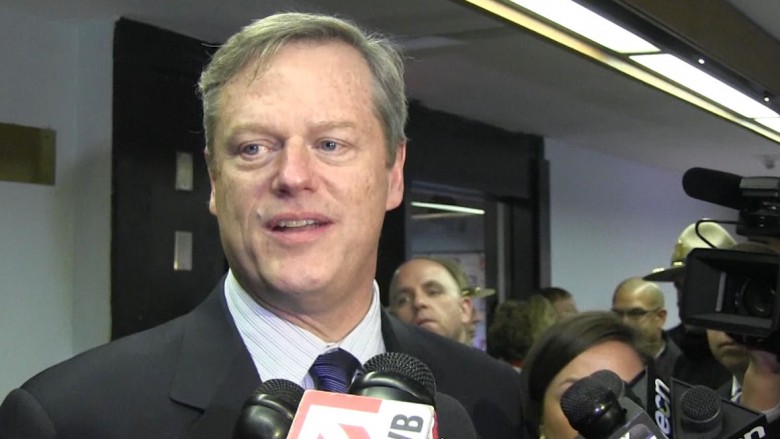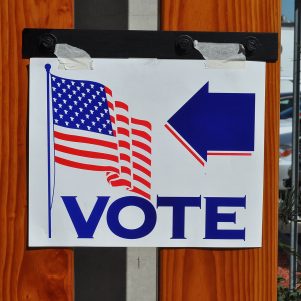Baker targets union disclosures with direct mail bill amendment
By State House News Service | July 26, 2016, 13:55 EDT
 (State House News Service photo by Antonio Caban)
(State House News Service photo by Antonio Caban) STATE HOUSE — A bill aimed at increasing transparency in political ads is back before the Legislature, after Gov. Charlie Baker proposed an amendment that would address concerns raised by Republicans who argued that the requirements were uneven.
Echoing a law already in place for TV, print and radio ads, the bill (H 543) would require political mailers and billboards to include a list of the top five donors to the organization that paid for them.
Though the disclosure requirements would apply to the conservative-leaning Massachusetts Fiscal Alliance, which sends mailers critical of Democratic candidates, critics said the bill was silent on labor unions, which often back Democrats.
“This is a bill that is going to chill free speech. That’s what this bill does,” Rep. James Lyons, an Andover Republican, said before the bill passed the House on June 22. “You don’t like what people say, so let’s come up with a nice way to tell people that we want to disclose donors. If you were serious about disclosing donors, you would make sure we got behind the unions. Where do those donations come from? But that does not happen in this piece of legislation.”
On Friday, Baker shipped the bill back to the Legislature, recommending language specifying the disclosure requirement would apply to communications “made by an individual group, association, corporation, labor union or other entity,” and replacing a reference to “group or association” with “group, association or labor union.”
“While it successfully extends the requirement that organizations disclose their top five donors — who make contributions in excess of $5,000 — in television, internet or print advertising to include advertising conducted through electioneering direct mail and on billboards, the legislation makes less than clear the types of organizations to which this requirement applies,” the governor wrote in his message to lawmakers.
Lyons said Tuesday that while he is “generally opposed” to the bill, he thinks Baker’s amendment is “a good step.”
Senate Minority Leader Bruce Tarr of Gloucester described Baker’s amendment as “hauntingly similar” to one he twice tried to add to the billfrom the Senate floor.
On July 5, the Senate rejected on a voice vote a Tarr amendment that would have added unions and political action committees to the bill’s language, then passed the bill.
The bill came before the Senate again nine days later for the vote that would send it to Baker’s desk. Acknowledging it was “extraordinary” to attempt to amend an engrossed bill, Tarr sought to suspend the Senate’s rules to propose his change once more. His attempt was denied three times, twice on voice votes and once by a 6-14 standing vote.
“I believe in transparency and disclosure, and I think if we’re going to go down that path we should make sure that everyone is covered by the law and has to disclose who is participating in the process,” Tarr told the News Service Monday. “And it seems to me that without that language, we allow to continue an enormous and unacceptable loophole for some forms of organized labor.”
Baker’s amendment is now before the House Committee on Bills in the Third Reading, where it was referred during formal session on Saturday.
Pam Wilmot, executive director of Common Cause Massachusetts, said the language the governor proposed didn’t represent a “substantive change” to the bill.
“Frankly, I don’t see the need for the amendment,” she said. “The kind of list of entities that he enumerated are already included in the regulations related to the provision, so I don’t see that it is harmful. I don’t really see that it is necessary, but at this point we’re going to be asking the Legislature just to adopt it.”
Wilmot said the top donor disclosure requirement would help voters evaluate campaign materials. She said she wanted to see the law in place before November’s elections.
“The time is very tight, so that also impacts decisions about how to go,” Wilmot said. “Our main concern is getting it enacted and in effect for the fall.”
— Written by Katie Lannan
Copyright State House News Service











